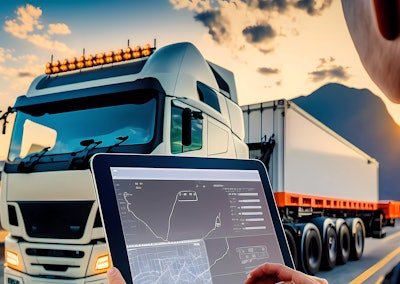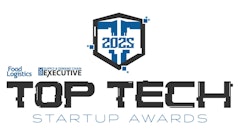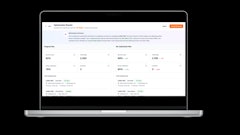
Nearly 81% of the shippers and logistics services providers (LSP) surveyed in Descartes Systems Group’s 9th Annual Global Transportation Management Benchmark Survey view transportation management as a differentiator or competitive weapon. This is a record high in the nine years of the study, underscoring transportation management’s rising role in fueling business growth and customer value. Similarly, those viewing transportation as a basic service or not important dropped to a 19%, an all-time low since the inception of the study.
“This year’s survey shows a sector making meaningful progress in elevating transportation from a cost center to a strategic driver of customer value and business growth,” says Mike Hane, director, product marketing, transportation management at Descartes. “This transition is backed by greater investment in TMS technology, according to study findings, as companies seek to more fully embed automation and AI in transportation management operations to enhance performance and generate value.”
Key takeaways:
· While transportation management systems (TMS) are increasingly recognized as an essential solution in modern technology environments for shippers and LSPs, significant gaps remain in automation and digital maturity. Only 17% of respondents report being fully automated, with over one-third heavily or mostly reliant on manual processes. This digital gap is especially pronounced between companies with industry leading financial performance (51% fully automated processes) and those with below average financial performance (5% fully automated processes) who trail significantly in automation, artificial intelligence (AI) adoption and growth expectations.
· In terms of adopting generative AI specifically, 96% of overall respondents indicated they are using it within their operations, with the Top 3 use cases cited as data entry (41%), route/load optimization (39%), and AI-driven freight forecasting and automated load matching/capacity sourcing (both 35%). The 4% of respondents not using generative AI were more likely to view transportation management as a necessary evil and more likely to expect limited to no growth over the next two years.
- 80% of respondents plan to increase TMS IT spending, with top priorities in performance management, visibility, and fleet routing.
- Carrier monitoring (i.e., insurance, safety, fraud) emerged as a Top 3 TMS capability, with North American respondents prioritizing the capability 7% higher than European counterparts.
- 72% of respondents expect at least 5% annual revenue growth in the next two years.





![Top Tech Startup Logo 2025 Vertical [color] (1)](https://img.foodlogistics.com/mindful/acbm/workspaces/default/uploads/2025/07/top-tech-startup-logo-2025-vertical-color-1.pZkBK95TLe.png?auto=format%2Ccompress&bg=fff&fill-color=fff&fit=fill&h=167&q=70&w=250)














![Top Tech Startup Logo 2025 Vertical [color] (1)](https://img.foodlogistics.com/mindful/acbm/workspaces/default/uploads/2025/07/top-tech-startup-logo-2025-vertical-color-1.pZkBK95TLe.png?ar=16%3A9&auto=format%2Ccompress&bg=fff&fill-color=fff&fit=fill&h=135&q=70&w=240)